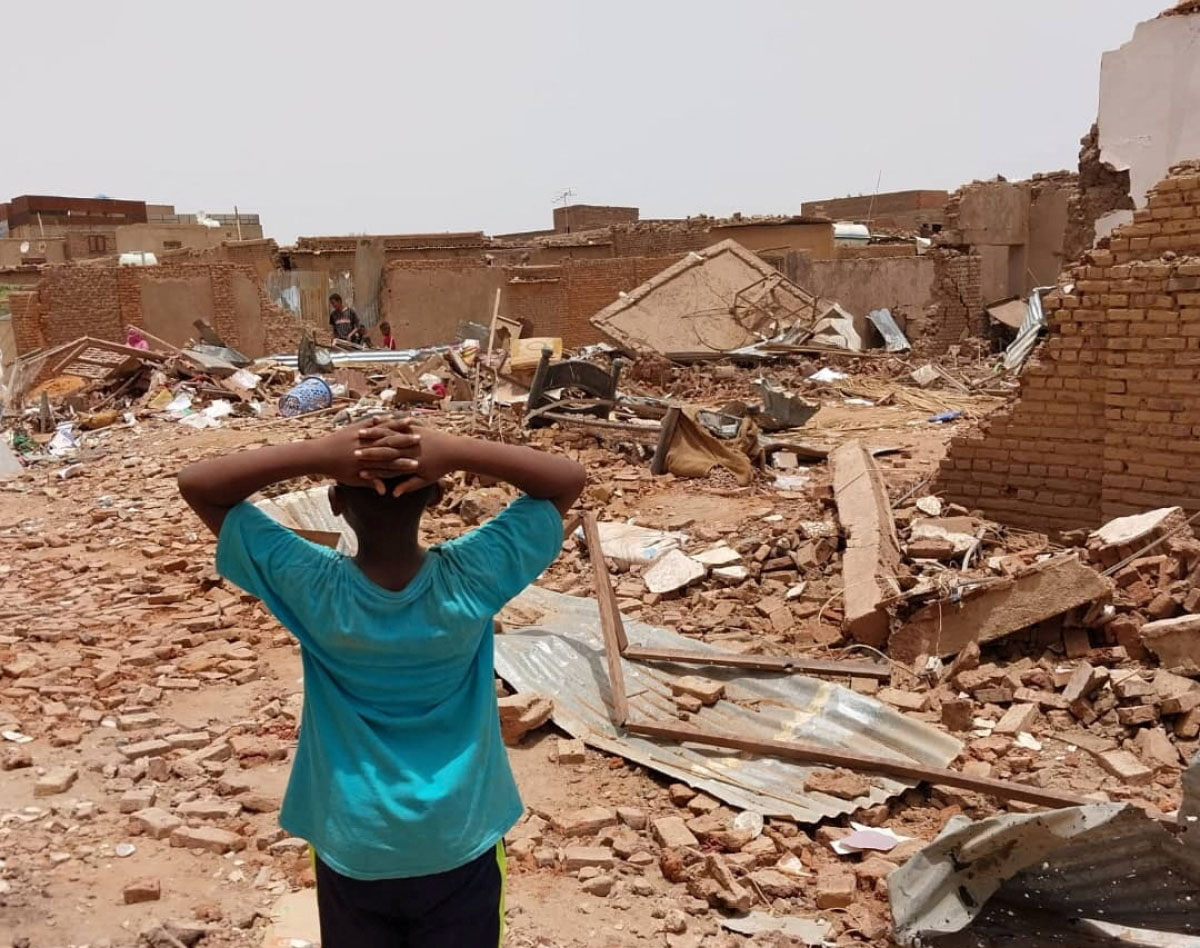
Sudan: 160 Days of War and its Suffering
By Walid El Noor
The suffering engulfing the Sudanese people, marked by hunger, thirst, displacement, and loss of property, especially in Khartoum, has left most of them unconcerned about winners or losers in the wretched war, nor about the parties supporting the conflicting sides.
For these victims, what preoccupies them is the uncertain fate they face after losing their jobs and homes. The fate of educating their children has become uncertain for parents in a capital city where its institutions were ravaged and plundered in broad daylight. They are concerned about the destiny of a nation that is adrift, threatened with division and fragmentation.
Observers believe that Sudan was not prepared to bear the cost of a new war added to its previous conflicts, especially after a great revolution toppled the Salvation regime, which witnessed the tragedy of the Darfur war and the pain of South Sudans secession. The Sudanese people had hoped for a genuine leap towards fair development, a bright future, building a new Sudan, and solving all their problems, harnessing their potential.
However, the war in mid-April plunged them into a new tragedy, along with pre-existing economic and humanitarian problems and displacement. This crisis was described by the US National Security Advisor Jack Sullivan in a previous statement to the US administration as something that must stop, and the bloodshed in Khartoum and Darfur is horrifying.
International and regional human rights organizations have documented humanitarian atrocities resulting from the war and warned that Sudan is on the brink of a real famine. More than 27 million Sudanese are in dire need of humanitarian aid after more than 12 ceasefires failed to hold. Over 400 refugees fled to neighboring countries, especially Egypt, Chad, South Sudan, Ethiopia, and the Central African Republic. Millions have been internally displaced to various states.
What happened on April 15th, in an armed conflict, regardless of the parties involved, does not concern the Sudanese people, who have always affirmed that their interests lie in achieving peace, democracy, justice, federalism, and good management of diversity. They believe that citizenship is the foundation for securing rights, duties, and balanced development based on geographical locations, as scholar Abdullah Adam Khattar sees it.
Khattar points out that after the December revolution, all expectations were for maximum solidarity and respect for the nations soil. However, the entry of military factions into war shattered all those efforts and endeavors.
Khattar believes that the current events require the formation of investigation committees to determine the causes and put an end to their recurrence, not just for treatment but also to stop their repetition.
He cautioned that the outbreak of war in Khartoum between the army and the Rapid Support Forces took many Sudanese by surprise, and the nation was not prepared for it. This situation caused disruption among families, whether in the capital or in states that witnessed the war extension.
Khattar also noted that the armed conflict has brought about significant changes in the nature of the capital city. Khartoum has become a ghost town, and he cited the neighborhood he resides in, stating, Just two weeks after the war, it is now inhabited by birds and dogs, after once bustling with people and life. Additionally, the loss of thousands of lives from the warring factions and civilians, especially the youth, is a significant setback at a time when the country needed them most for rebuilding.
Khattar pointed out that the destruction of buildings, hospitals, factories, and other governmental and private institutions, as well as citizens homes, will hinder the nation and complicate its economic situation. He stated that citizens already struggled with food and drink, and he did not rule out, under these dire circumstances and the continuation of the war and the intransigence of the warring parties, the occurrence of a famine. Thus, Sudan may become hostage to international aid.
Khattar called for more initiatives from Sudanese aiming to make a solution through negotiation and peace possible. He also urged the legal community and judiciary in Sudan to fulfill their duty towards the nation by forming legal investigation committees to understand what happened and prevent its recurrence, all in accordance with the laws and regulations. Sudan should be a real state governed by laws, not an open country for aggressors and saboteurs.

